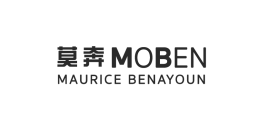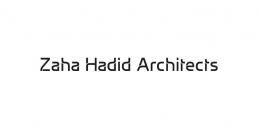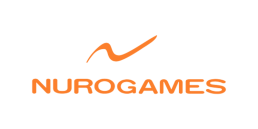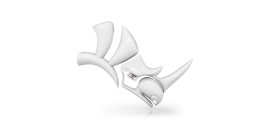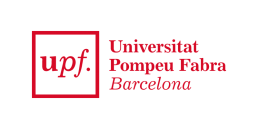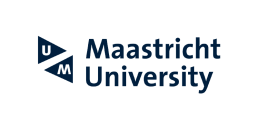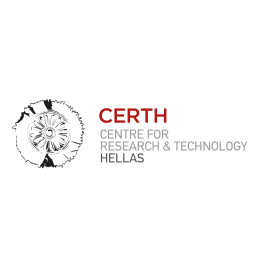Analog Native
Analog Native
AN, Berlin, Germany www.analognative.net
Analog Native is a technology-driven art and design studio located in Germany / Berlin affiliated with Refik Anadol. Their work lies at the intersection of media arts and architecture with using machine intelligence for 21st century. Constantly searching for unique urban experiences for 21st century’s city that is explicitly dynamic, a shift that opens up poetic possibilities for inhabitants of itself with machine intelligence. Project can be an integralpart of artist’s ongoing ‘Temporary Immersive Environment Experiments’ which is a research on audio/visualinstallations by using the state called immersion which is the state of consciousness where an immersant’sawareness of physical self is transformed by being surrounded in an engrossing environment; often artificial, creating a perception of presence in a non-physical world. In this project ‘infinity’ chosen as a concept, a radicaleffort to deconstruct the framework of this illusory space and transgress the normal boundaries of the viewing experience to set out to transform the conventional flat cinema projection screen into a three-dimensional kinetic and architectonic space of visualization by using contemporary algorithms. Light is the major element in the experiment, used to blur and interconnect the boundaries between the two realms actual/fictional and physical/virtual. It signifies the threshold between the simulacrum space created by the projection technology, and the physical space where the viewer stands. The experiments will discuss the inherent spatial qualities of immersive virtual environments and their effect on the embodied person. Through the presented framework, the experiments intend to question the relativity of perception and how it informs the apprehension of our surroundings. Rather than approaching the medium as a means of escape into some disembodied techno-utopian fantasy, projects sees itself as a means of return, i.e. facilitating a temporary release from our habitual perceptions and culturally biased assumptions about being in the world, to enable us, however momentarily, to perceive ourselves and the world around us freshly.
People
Refik Anadol
Media artist, Director
Juliane Götz
Media artist
Sebastian Neitsch
Media artist
Raman Mustafa
Nicholas Boss
User experience designer, Data scientist
Maurice Benayoun & Tobias Klein
Maurice Benayoun & Tobias Klein
MoBen, www.benayoun.com
Maurice Benayoun started working with VR in 1993, exhibited the “Big Questions” in 1994, “The Tunnel under the Atlantic” (VR installation Pompidou Centre, Museum of Contemporary Art Montreal in 1995). Since that time he has been working with interactive exhibition design, Augmented Reality (Hanover World Expo 2000). He started his work on Mechanics of Emotions in 2005, exhibited in more than 10 different countries and more recently “Brain Factory” (EEG, Real Time CG Graphics, AI, 3D Printing) (since 2016, Paris, Seoul, Brisbane, Laval, Hong Kong). Working on Urban Media Art since 2002, he has been in charge of the Open Sky Project, on the biggest urban media screen in the world (ICC Tower HK, 77 000 sqm) since 2016. He developed the concept of Critical Fusion, a mix of Fiction and Reality in the urban space, Extended Relativity (published papers on Relativity theory applied to subjectivity in the urban space (together with his homonym Maurice Benayoun, Nuclear Physics scientist). He will collaborate with Tobias Klein, German architect and artist working with 3D printing and algorithmic design and with Jean-Baptiste Barrière, international composer, former director ofresearch and education at IRCAM. He has received more than 20 international awards.
People
Professor Maurice Benayoun
Artist, MoBen
Jean-Baptiste Barrière
Zaha Hadid Architects
Zaha Hadid Architects
ZH, London, United Kingdom, www.zaha-hadid.com
Zaha Hadid Architects (ZHA) is a multi award winning architectural practice with over 30 years experience. With over 3,000,000 square feet of built construction and a further 17,000,000 square feet in design or construction planning Zaha Hadid Architects has expanded to 350 staff based in their London offices. In addition, they have site offices in Rome, Guangzhou, Beijing and Hamburg.
ZHA prides themselves on being in the vanguard of design culture and delivering innovative design solutions and projects that marry contemporary technology with the forefront of architectural thinking. They work in all design sectors and at all scales with an emphasis on culturally significant projects. From their studio in London, ZHA delivers projects around the world, working collaboratively with engineering specialists and local architectural practices. Their portfolio includes completed projects in North America, Europe, the Middle East, and Asia.
Within ZHA, the Computation and Design research group (ZH-CODE) operates as an in-house consultancy offering expertise in various areas related to architectural design modelling. The group was initiated in 2007 with the aim of harnessing opportunities latent in the inter-disciplinary collaboration of computationally literate architects, engineers and emerging digital manufacturing methods.
ZH-CODE endeavors to develop design methods that enable the exploration of spatial organization and articulation within the bounds of physical, economic, and ergonomic feasibility. ZH-CODE pursues this through the projects it engages, the prototypes it builds, and the network of research collaboration it fosters.
Within ZHA, the Agent Based Parametric Semiology research group focuses on the development of a computational framework for social crowd interaction modelling and analysis tied with the semiotics of designed architectural environments.
People
Patrik Schumacher
Architect, Principal Zaha Hadid Architects
Tyson Hosmer
Architect, Associate Zaha Hadid Architects
Head Agent Based Parametric Semiology (ABPS)
Shajay Bhooshan
Architect, Associate Zaha Hadid Architects
Head ZHA-CODE
David Reeves
Architect, Senior Designer ZHA-CODE
Mathias Fuchs
Researcher ZHA-CODE
Nurogames
Nurogames GmbH
Nuromedia GmbH (NURO),
Cologne, Germany, www.nuromedia.com
Nurogames GmbH, Cologne/Germany is an independent games development company, founded in early 2006 by practised experts of the games and media industry. Next to our head office in Cologne we maintain representative offices in Barcelona and Berlin. Since April 2011, the Berlin-based lbxgames GmbH and lieblinx GmbH are a part of the company and form a strong strategic alliance.
Nurogames covers a wide range of work experience, comprising high-skill development for mobile and cross- platform games, leisure applications being our main field of activity. Another focus of the company is placed on the development of games for Xbox one (Kinect), Playstation 4, Playstation Vita, Nintendo 3DS, Nintendo DS and Nintendo Wii, Virtual Reality and Augmented Reality. Furthermore we develop mobile games / applications and social games.
The mobile division is specializing in the development, production and marketing of mobile applications for iOS and Android Smartphone and Tablet as well as contents, ranging from innovative applications like games, active screens, instant messaging etc. to pod-cast solutions. Currently developments have been ordered for iPhone/iPad touch platforms and Android applications as application for other application stores as well (Windows Marketplace, Mac App Store, etc.).
Further working fields include the development of web-based e-learning games and game based e learning evolutions as well as the realization of online and browser games for an international market.
By participating in multiple research projects on a national and international level, Nurogames ensure the long- term orientation and the knowledge of state-of-the art technologies. The Team of Nurogames has got many years of experience in research projects of the BMBF and the European Union. They include such projects as MaTHiSiS, PATHway. RAGE, 5GTANGO, SPIELBAR, MMOBG Development MEDIA.
People
Jens Piesk
CEO & Founder Nurogames GmbH
Dr. Holger Sprengel
Co-Founder and Chairman Nurogames GmbH
up2metric
up2metric P.C.
u2m, Athens, Greece, www.up2metric.gr
up2metric Private Company is an SME that develops innovative custom software solutions and provides consulting engineering services in the fields of Computer Vision, Photogrammetry, Remote Sensing and Metrology. up2metric as a service provider specializes in data capture from multiple terrestrial, airborne or satellite sensors (RGB, thermal, multispectral/hyperspectral, depth), data processing and analysis of extractedinformation. One of the company’s main goals is to transfer state of the art knowledge from academia to the market. In this context up2metric develops custom B2B software, based on key enabling technologies such as 3D computer vision, image processing, machine learning, AR/VR, Drones and 3D printing. up2metric is active in the following sectors: Geospatial, Industrial Metrology & Automation, 3D surveying, Construction, Precision Agriculture and Real Estate and has carried out successfully commercial projects on: 3D Mapping by means of UAVs and mobile mapping platforms, Infrastructure Inspection, Ship Inspection, Cultural Heritage Recording,GIS and BIM. up2metric’s main research interests include image-based 3D modelling (Structure-from-Motion, Stereo-Reconstruction), 3D scanning by means of different technologies (laser scanners, RGB-D sensors, structured light), Pattern Recognition via Deep Learning techniques, hyperspectral and multispectral sensor data processing and analysis, Simultaneous Localization and Mapping and Sensor Calibration. up2metric is part of Attica Technology & Science Park “Lefkippos” at the National Centre for Scientific Research “DEMOKRITOS”.
People
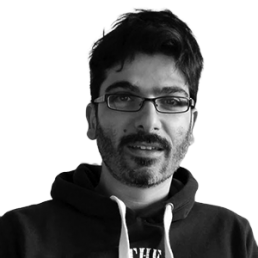
Stentoumis Christos
Cofounder of up2metric P.C.
Surveying Engineer (Dip. Surveying Engineer NTUA), PhD Candidate at NTUA
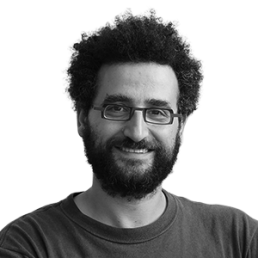
Ilias Kalisperakis
Cofounder of up2metric P.C.
Dr. Surveying Engineer (PhD, Dip. Surveying Engineer NTUA)
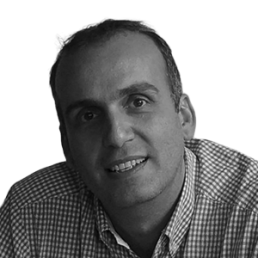
Lazaros Grammatikopoulos
Scientific Advisor at up2metric P.C., Assistant Professor at UNIWA
Dr. Surveying Engineer (PhD, Dip. Surveying Engineer NTUA)
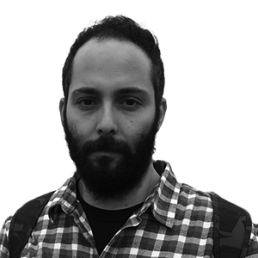
Andreas El Saer
Engineer at up2metric P.C.
Surveying Engineer (Surveying Engineer UNIWA), MSc Computer Graphics (UNIWA)
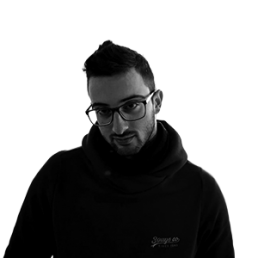
Theodor Mandilaras
Junior Developer at up2metric P.C.
Computer Scientist (Department of Informatics & Telecommunications NKUA)
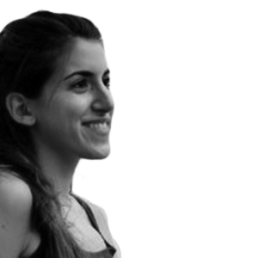
Stavroula Bourou
Computer Vision & Machine Learning Engineer at up2metric P.C.
Surveying Engineer (Dip. Surveying Engineer NTUA), MSc Geodesy and Geoinformation Science (TU Berlin)
McNeel Europe
McNeel Europe SL
McNeel, Barcelona, Spain, www.mcneel.com
Rhinoceros3D, www.rhino3d.com
Founded in 1980, Robert McNeel & Associates is a privately-held, employee-owned company with development, sales support, and training offices and affiliates in Seattle, Boston, Miami, Medellin, Barcelona, Rome, Tokyo,
Taipei,Seoul, Kuala Lumpur, Beijing, Shenzhen, andShanghai. We also have more than 700 dealers, distributors, OEMs, and training centers around the world. Founded in 1998, McNeel Europe is the European, Middle Eastern, and African headquarters for Robert McNeel & Associates. McNeel Europe is responsible for
sales, marketing, training, support, and localization of all McNeel products in Europe, Middle East, and Africa (EMEA). McNeel also develop Penguin, Food4Rhino, and other Rhino related products.
McNeel has a long experience in the development and support of architecture and designing software. Our main product is Rhinoceros® which works on both platforms: Windows and OS X. Rhinoceros is a NURBS modeler and open 3rd party plugin development platform based on OpenNURBS and RhinoCommon. McNeel develops Grasshopper a graphical algorithm editor tightly integrated with Rhino’s 3-D modeling tools. Currently it is our most successful plugin in the AEC area. It provides its own rich plugin development ecosystem.
In addition, there is significant experience in the dissemination and support of our customers throughout our technical support department and our user community with 14 000 active users and 18 Mio visitors.
People
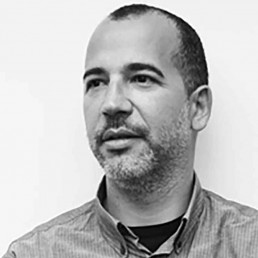
Carlos Pérez Albà
Sales manager and business development at McNeel Europe
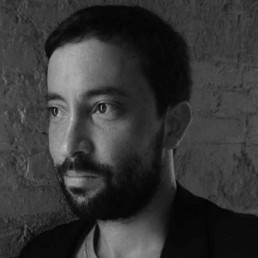
Luis E. Fraguada
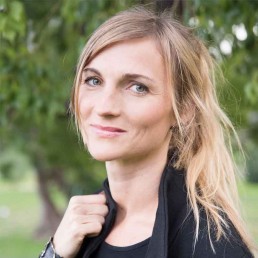
Verena Vogler
Architect and researcher
PhDCand. Chair of Computer Science in Architecture Bauhaus-University Weimar
University Pompeu Fabra
Universitat Pompeu Fabra
UPF, Barcelona, Spain, www.upf.edu
UPF-TALN, www.taln.upf.edu
Universitat Pompeu Fabra (UPF) was established in 1990 as a public university with a strong dedication to excellence in research and teaching. It is the one of the few Spanish university in the world Top 150 (Times Higher Education ranking – THE 2018), among the first 20 under 50 years (THE 2018) and among the first 10 among young universities in the world that progressed most quickly (THE 2015, Young Universities Summit). UPF is also ranked 1st in Europe (U-Multirank 2018) and 1st in Spain in teaching and research performance (U- Ranking, BBVA Foundation & Ivie, 2017). In MindSpaces, UPF participates through the Natural Language Processing Group (UPF-TALN) of the Department of Information and Communication Technologies (DTIC). DTIC has an important track record of active participation and in EU projects, including coordination (a total of 66 FP7 projects and 10 other projects in non-FP7 program such as CIP, Ambient Assisted Living and the Lifelong Learning Program, and, up to now more than 20 H2020 projects). DTIC is the Spanish university department withthe largest number of ERC grants (15), forming also part of the FET Flagship initiative “The Human Brain Project”. It is the only Spanish ICT department that has been awarded the “Maria de Maeztu” excellence by the Spanish government for the quality and relevance of its pioneering scientific research, and as the top IT research concentration in Spain.
UPF-TALN (http://www.taln.upf.edu/) has been founded in 2005 by its current director Prof. Leo Wanner. During the thirteen years of its existence, it has gained widely acknowledged expertise in a number of areas in Natural Language Processing, including text analysis, content (concept and concept relation) extraction from multilingual material, multilingual text generation and summarization, and language resources acquisition. UPF- TALN has a solid record of coordination of and participation in large scale European and national RTD projects –among them MARQUIS (EDC-11258), PATExpert (FP6-ICT-028116), PESCaDO (FP7-ICT-249584), TOPAS (FP7-SME-286639), MULTISENSOR (FP7-ICT-610411), Dr. Inventor (FP7-ICT-611383), iPATDoc (FP7-SME- 606163), KRISTINA (H2020–645012–RIA), TENSOR (H2020-700024-IA), beAWARE (H2020-700475-IA), able to Include (CIP-ICT-PSP-2013-7/621055), and V4Design (H2020-RIA-779962).
People
Prof. Leo Wanner
ICREA Research Professor, UPF
Head of TALN Group
Dr. Simon Mille
Senior Researcher, UPF TALN
Dr Stamatia Dasiopoulou
Senior Researcher, UPF TALN
Prof. Horacio Saggion
Associate Professor, UPF
Dr. Jens Grivolla
Senior Researcher, UPF
Associate Professor, UPF
Maastricht University
Maastricht University
Maastricht, The Netherlands, www.maastrichtuniversity.nl/
Maastricht University (MU) is the most international university in the Netherlands and, with more than 16,000 students and 4,000 employees, is still growing. The university stands out for its innovative education model, international character and multidisciplinary approach to research and education. Today it is considered one of the best young universities in the world (#4 in the 2016 THE ranking of universities younger than 50 years). In FP7 MU was involved in over 150 projects with approximately 60 million euro of funding volume. In 2014 and 2015 it had reached again 50 projects with approximately 20 million euro of funding volume.
The Faculty of Psychology and Neuroscience at MU is home to the department of Cognitive Neuroscience and the Maastricht Brain Imaging Centre (M-BIC), comprising of 9 research groups, that are carrying out research on the topics such as auditory perception emotion and cognition columnar level fMRI, physiological (f)MRI, visual perception and learning, developmental neuroscience, and fMRI methods. MU will contribute to MindSpaces in addition to office space for the staff working on the project and access to the facilities, other existing smaller equipment (such as a power platform, camcorder, camera, etc.) and software (e.g., for behavioral analysis and video editing) if needed. MU has strong expertise in affective neuroimaging research mainly focused on face and body emotion recognition and regularly hosts artist residences. In the framework of the project Prof. de Gelder will organize events stimulating collaboration with artists and use the network and facilities of the non-profit organisation Fundamental Research (www.fundamentalresearch.org).
The research of the department of Technology and Society Studies focuses on Innovation Cultures and draws on a combination of philosophical, historical, sociological and anthropological approaches. The general question is how modern societies are constituted by science and technology, and how, vice versa, social and cultural conditions shape technological and scientific developments. The TSS department is part of the Faculty of Arts and Social Sciences (FASoS), that studies how major developments in societies and cultures as they have unfolded during the modern and contemporary eras. It seeks to gain understanding of the interrelationships of Europeanisation, globalization, scientific and technological development, political change and cultural innovation. It is interested in how today’s societies cope with these challenges through technologies, practices ofremembrance, governance and strategies for managing knowledge diversity and equality.
The department of Data Science and Knowledge Engineering carries out research on artificial intelligence, computer vision, image and signal processing, applied mathematics and machine learning. At DKE, SoA algorithms are developed and are applied to robotics, assisted living, surveillance, optimization, biomedicine. The department collaborates with many of the campus institutes to address and solve interdisciplinary problems.
People
Prof. Beatrice de Gelder
Professor of Social and Affective Neuroscience, Faculty of Psychology and Neuroscience, Maastricht University
Dr. Maarten Vaessen
Computer scientist and Neuroscientist
Senior Postdoctoral Researcher, Maastricht University
Prof. Harro van Lente
Professor, Science and Technology Studies
Prof. Alexia Briassouli
Assistant Professor, Maastricht University
Centre for Research and Technology Hellas
Centre for Research and Technology Hellas (CERTH)
Information Technology Institute (ITI)
CERTH, Greece, www.certh.gr
Information Technology Institute, www.iti.gr
Multimedia Knowledge and Social Media Analytics Laboratory, www.mklab.iti.gr
The Centre for Research and Technology-Hellas (CERTH), founded in 2000, is the only research center in Northern Greece and one of the largest in the country. CERTH has important scientific and technological achievements in many areas including: Energy, Environment, Industry, Mechatronics,
Information & Communication, Transportation & Sustainable Mobility, Health, Agro-biotechnology, Smart farming, Safety & The Centre for Research and Technology-Hellas (CERTH), founded in 2000, is the only research center in Northern Greece and one of the largest in the country. CERTH has important scientific and technological achievements in many areas including: Energy, Environment, Industry, Mechatronics, Information & Communication, Transportation & Sustainable Mobility, Health, Agro-biotechnology, Smart farming, Safety & Security, as well as several cross-disciplinary scientific areas. Today CERTH includes the following five institutes: (a) Chemical Process & Energy Resources Institute (CPERI), (b) Information Technologies Institute (ITI), (c) Hellenic Institute of Transport (HIT), (d) Institute of Applied Biosciences (INAB), (e) Institute for Research and Technology Thessaly (IRETETH). Out of those, CERTH participates in this proposal through Information Technologies Institute (ITI).
CERTH is essentially a self-supported Research Centre generating an average annual turnover of ~€ 22 Millioncoming from: (a) >30% bilateral industrial research contracts, (b) >60% competitive research projects, (c) <10% as government institutional funding. More than 600 people work at CERTH with the majority being scientists. CERTH has received numerous awards and distinctions such as the European Descartes Prize, the European Research Council (ERC) Advanced Grant, Microsoft International Contest Prize, the Trading Agents Competition Award and many more and is listed among the Top-20 of the EU’s Research Centers with the highest participationin FP7 competitive research grants. CERTH has participated successfully in more than 1.000 competitive researchprojects (with a total budget exceeding 423 M€ and involving more than 1.100 international partner organizations)financed by the European Union (EU), leading industries from USA, Japan and Europe and the Greek Government via the General Secretariat of Research and Technology (GSRT).
The Information Technologies Institute (ITI) of CERTH was founded in 1998 as a non-profit organization under the auspices of the GSRT, with its head office located in Thessaloniki, Greece. Since 2000 it has been a foundingmember of the GSRT supervised CERTH. ITIʼs related areas of research are Social Media Analysis, Indexing andRetrieval, Semantic Multimedia Analysis, Affective Computing, Image and Signal Processing, Computer and Cognitive Vision, Pattern Recognition and Machine Learning, Human Computer Interaction, Virtual and Augmented Reality and Artificial Intelligence.
The participating team, namely the Multimedia Knowledge and Social Data Analytics laboratory (MKLab), part of the Information Technologies Institute (one of the five CERTH institutes), has significant experience and
scientific expertise on the technical aspects of MindSpaces, namely on computer vision, image processing and machine learning area, such as human activity localization and recognition, interactive video retrieval as analytically described in the main achievements section. Furthermore, MKlab has deep knowledge in recognizing the objects and scenes that exist in images, represent their features and fuse them in several sophisticated ways. MKlab expertise has been cultivated and blossomed through its leading and cooperative role in several EU multimedia related projects, such as H2020 in VID and FP7 iTREASURES, and FP7 MULTISENSOR. MKlab also participates in many multimedia tasks of TRECVID such as INS (INStance search), SED (Surveillance Event Detection) and AVS (Ad-hoc Video Search) that give the lab the opportunity to learn and improve throughout years, as well as adopting and get inspired from state-of-the-art related technologies.
In the recent years, the team has coordinated and participated in more than 20 European and National research projects in the areas of multimedia processing, information extraction and social media monitoring and analysis. MKLab currently coordinates the H2020 ICT MAMEM, the H2020 SEC BeAWARE and the H2020 ICT ENVISAGE and has leading roles in H2020 ICT KRISTINA, H2020 SEC TENSOR. Furthermore, MKLab has coordinated the FP7 ICT STREP MULTISENSOR, the FP7 ICT IP SocialSensor and the FP7 ICT IP Dem@Care. In addition, it had leading roles in FP7 SEC CP-FP HOMER, FP7 ICT Live+Gov, FP7 ICT REVEAL, FP7 ICT STREP WikiRate, FP7 ICT IP LinkedTV, FP7 ICT ForgetIT, FP7 ICT PERICLES and FCT ICT USEMP.
People
Dr. Ioannis (Yiannis) Kompatsiaris
Senior Researcher (Researcher A), CERTH
Dr. Stefanos Vrochidis
Senior Researcher, CERTH ITI
Dr. Sotiris Diplaris
Postdoctoral Research Fellow, CERTH ITI
Dr. Spiros Nikolopoulos
Postdoctoral Research Fellow, CERTH ITI
Dr. Konstantinos Avgerinakis
Postdoctoral Research Fellow, CERTH ITI
Nefeli Georgakopoulou
Architect, DIgital artist
Aristotle University of Thessaloniki
Aristotle University of Thessaloniki
AUTH, Greece, www.auth.gr
School of Architecture, www.architecture.web.auth.gr
The Aristotle University of Thessaloniki (A.U.Th.) is a state institution established in 1925, under the FirstGreek Democracy and the largest university in Greece. It comprises 11 faculties which consist of 52 schools. It’sworth mentioning that A.U.Th., in the 2009-2011 period, has collaborated with 1.700 partners (Universities, Research Centers and Companies) for the implementation of 3.500 Research and Technological Development RTD. The overall budget of these projects has risen up to 150 million euros
The School of Architecture, founded in 1950, is one of the seven schools of the Faculty of engineering. The academic education, which the School is offering has as main objective to create a profile of an architect capable of coping with a broad spectrum of professional activities covering all scales of space, all levels of planning, design and re-design, that is to say from object and interior design, to building and urban design, conservation and restoration, landscape design, urban and regional planning. Τhere are five Departments at the School of Architecture: Department of Architectural Design and Visual Arts, Department of Architectural and Urban Design, Department of Urban and Regional Planning and Development, Department of History of Architecture, History of Art, Architectural Morphology and Restoration and Department of Architectural Design and Architectural Technology. A large number of staff members is involved in research projects and programs that are funded from private or public bodies in Greece and/or the European Union. The Department of Architecture encourages and fosters the initiatives of its staff to assert for such endeavors. The financial management of such projects and programs is undertaken by the Research Committee of Aristotle University of Thessaloniki. Numerous postgraduate and doctoral students contribute to the development of such projects and programs.
The role of School of Architecture of AUTH will support MindSpaces with its expertise on advanced design and modelling at architectural and urban scales. It will collaborate with the creative partners of the consortium, both professional office and artists, so that the related work packages are properly developed and implemented.
People
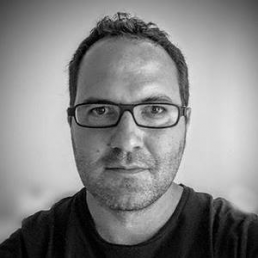
Anastasios Tellios
Dr.Architect, Dip. Arch. AUTh, M.Arch(Dist.) Bartlett UCL, PhDAUTh
Associate Professor, AUTH
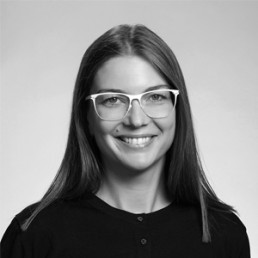
Despoina Zavraka
Dr.Architect (Dip. Arch. Mackintosh, GSA) and Landscape architect (MLAAUTh), PhDAUTh
Assistant Professor, EMATECH
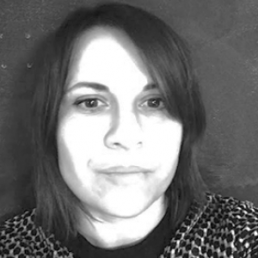
Panagiota Koulali
Architect (Dip. Arch. AUTh) and Landscape architect (MLAAUTh),
PhDCand. AUTh
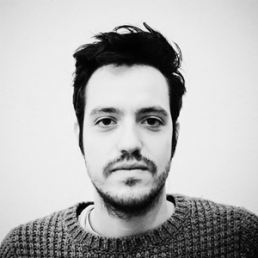
Dimitrios Chatzinikolis
Architect (Dipl. Arch. AUTh)
Researcher
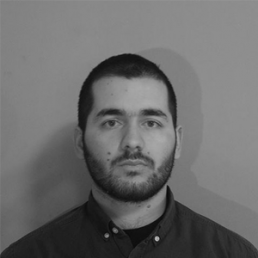
Georgios Grigoriadis
Architect (Dipl. Arch. AUTh)
Researcher


